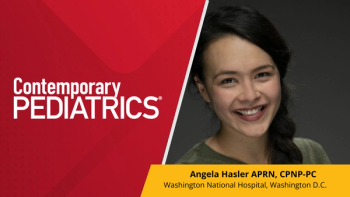
New glucagon formulations simplify emergency treatment for T1D patients
Brittany Bruggeman, MD, highlights the importance of newer, easier-to-use glucagon formulations in treating severe hypoglycemia in patients with type 1 diabetes.
Brittany Bruggeman, MD, a pediatric endocrinologist at the University of Florida and type 1 diabetes (T1D) physician scientist, highlighted crucial advancements in diabetes management, particularly regarding the use of glucagon for severe hypoglycemic events.
Bruggeman emphasized the critical importance of having glucagon readily accessible for patients with T1D. “Glucagon is what I like to think of as the EpiPen of diabetes, and so it's very important that everybody with T1D, or even type 2 on insulin, has glucagon immediately available to them,” she said during an interview at the
Recent developments in glucagon formulations have made it much easier to administer, especially in emergency situations. Bruggeman noted that older versions required users to mix a powder and liquid before injection, a process that could be confusing and time-consuming. “What we used to have to do is mix a powder and a liquid together before injecting the person with glucagon, which made it really tough for people in the lay public to know how to use this, and even, like school nurses and things, had to have special trainings,” she explained.
However, new formulations of glucagon have simplified the process, making it more accessible to non-medical personnel. “Now there's a formulation that is a nasal spray, and so literally, you just spray the powder into the person's nose,” Bruggeman said, highlighting how this change has improved usability. Additionally, there are now shelf-stable liquid versions of glucagon that function similarly to an EpiPen, allowing for a quick injection without needing to mix anything.
Bruggeman stressed the importance of awareness among healthcare professionals and the public regarding these advancements. “It's really important that the lay public, pediatricians, [and] everyone knows about glucagon, and that if someone with T1D is on insulin, they need to have access to this in order to treat them if they had a severe hypoglycemic event,” she said.
Newsletter
Access practical, evidence-based guidance to support better care for our youngest patients. Join our email list for the latest clinical updates.








